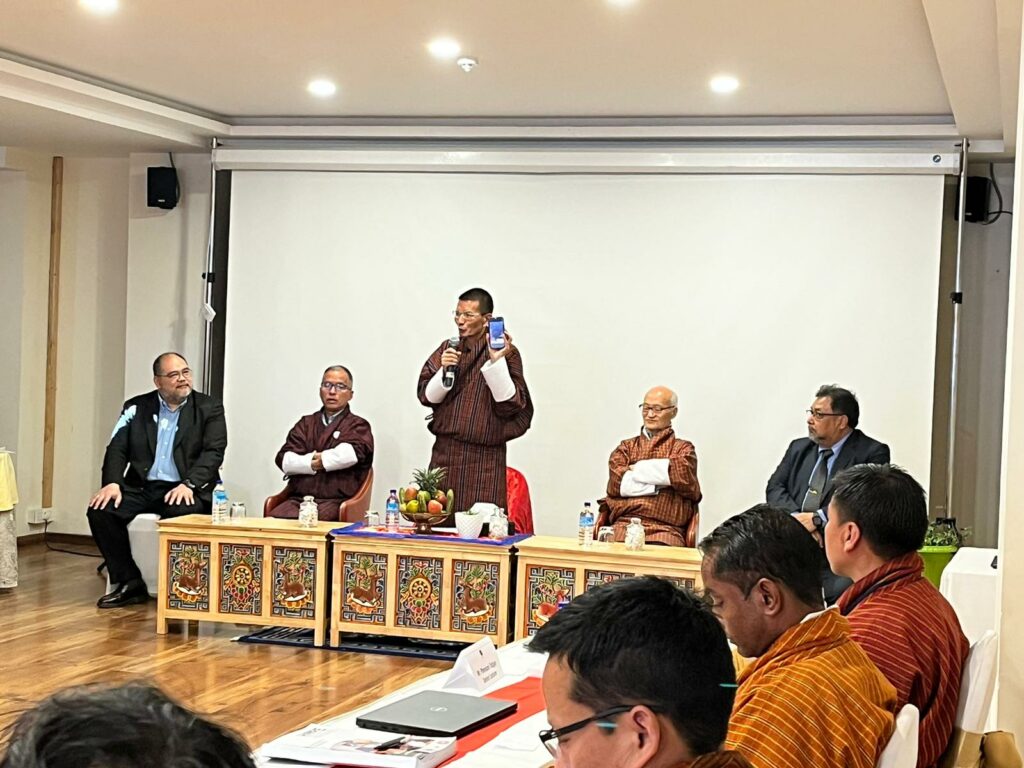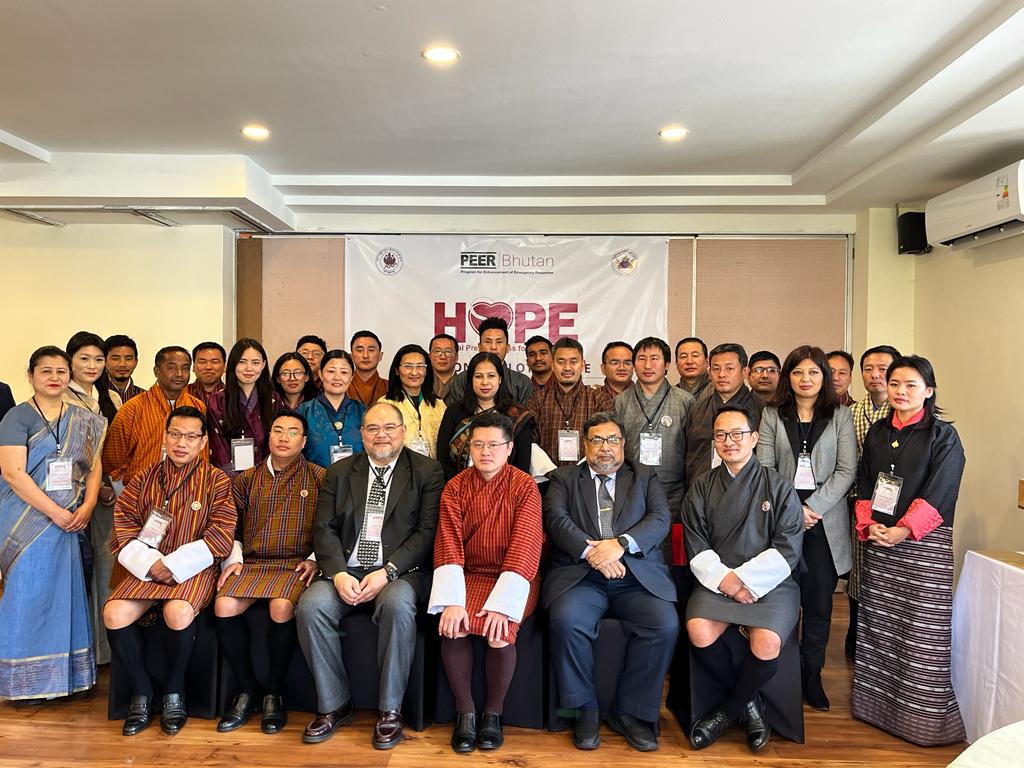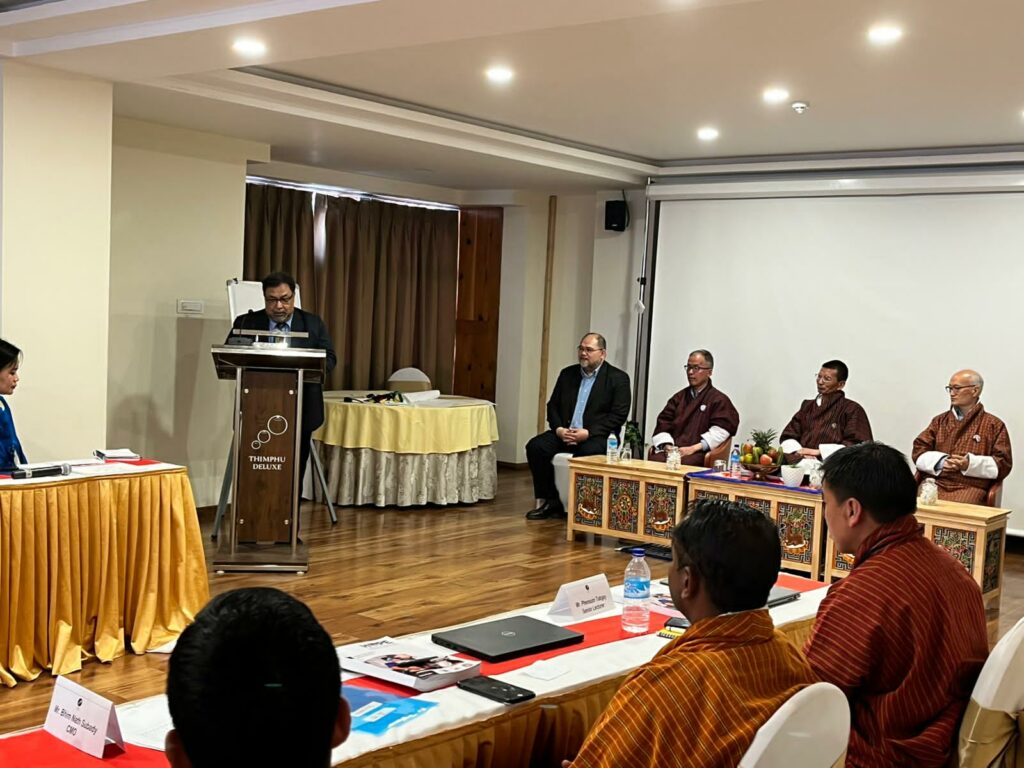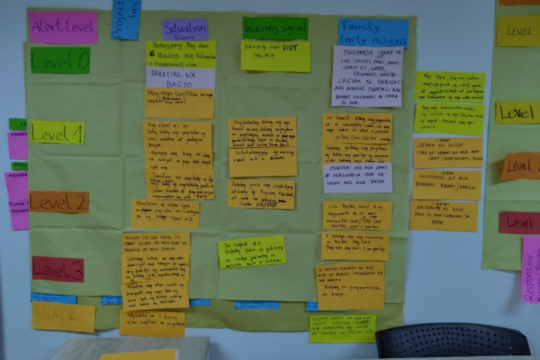PEER passes the baton of emergency preparedness to newer countries as it expands HOPE to Maldives and Bhutan. The 4-day HOPE training, aimed at developing better prepared and informed medical professionals was piloted in these countries with nodal ministries and partner institutions.
In partnership with the National Disaster Management Authority (NDMA), Ministry of Health (MoH), and Health Protection Agency (HPA), PEER initiated the HOPE pilot training on 26 February in Male, Maldives. The course aimed to equip 23 doctors and senior officials from hospitals, with critical care knowledge during emergencies. To ensure the highest quality of training, PEER invited seven senior instructors from Nepal, Bangladesh, and Sri Lanka to share their expertise and coach the participants on disaster management.

From 6th to 9th March, Thimphu, Bhutan hosted another successful HOPE course training, marking the country’s entry into the HOPE community as its 14th member. The training was a result of the partnership between the Ministry of Health (MOH), Khesar Gyalpo University of Medical Sciences of Bhutan (KGUMSB), and ADPC to pilot PEER in the country.
“The integration of courses like HOPE is crucial for mitigating the losses caused by disasters. With this new knowledge of disaster risk management, all participants can approach their work in hospitals with a fresh perspective”, Mr. Pemba Wangchuk, The Acting Secretary, MoH said while addressing the participants.


The course aimed to provide disaster risk management (DRM) knowledge to 21 doctors and other non-medical staff from hospitals in Bhutan. The participants were keen to learn the basics of disaster risks in the health sector and become better equipped to handle emergencies in the future. Seven veteran trainers from Nepal joined the training, as mentors to guide the attendees.
“Hospitals are the first line of defense in responding to disasters, as we’ve seen from past events in Turkey and Nepal. They need to remain functional and ready to respond”, Mr. John Abo, Technical Lead at the Asian Disaster Preparedness Center added while introducing the PEER program during the HOPE training in Bhutan.
HOPE course aims to strengthen the disaster resilience of medical facilities and reduce risks to vulnerable countries by working at the root of their healthcare systems. The curriculum advocates for the development of a multi-hazard response system to help hospitals prepare for emergencies effectively.
It not only focuses on doctors but also on non-medical staff, highlighting the importance of proper coordination among different health facility departments and prioritizing critical actions. The HOPE course is designed to impart key messages on these essential aspects to help build a robust and resilient healthcare system capable of managing emergencies efficiently.
“With its systemic approach, the capacity-building course is easily applicable in various countries. As we pilot the 4-day HOPE training, we’re thrilled to welcome Maldives and Bhutan as the newest member of our PEER community,” Dr. Pradeep Vaidya, Asst. Dean at the Institute of Medicine, Nepal, and the course coordinator for the training added.

The training has introduced a new perspective on disaster management in the countries. The attendees of these training sessions are considered pioneers of the HOPE course in their respective countries. Through the program, they have gained knowledge about different types of hazards, injuries, and infections that can result from disasters, and learned how to provide on-site care, manage infectious diseases, handle communication, and maintain hospital infrastructure during emergencies.
The successful completion of the training marks a significant milestone in regional learning and cooperation in healthcare preparedness. The initiative not only helps the participating countries enhance their preparedness for emergencies but also strengthens the overall preparedness of the region. However, the training does not stop there. Selected participants will undergo instructor training to acquire the necessary skills to pass on their knowledge and expertise to even more people. This will help ensure that the benefits of HOPE reach as many people as possible, strengthening the preparedness of the healthcare system in these countries and reducing the risks associated with disasters.


